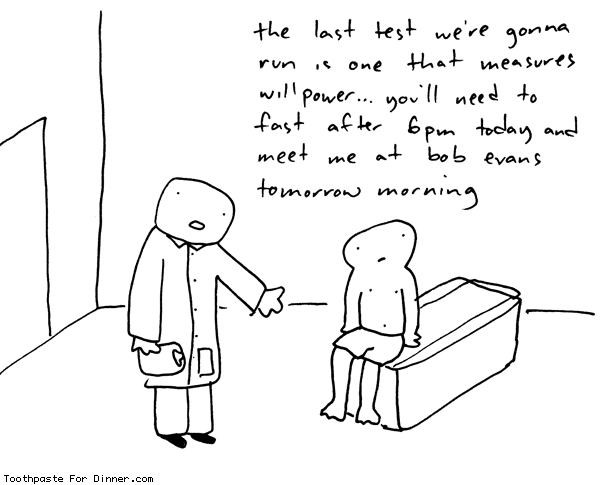Wednesday, November 3rd
"Wordless Wednesday"-Share a picture or video on your blog!
The Three Most Important Things That Help with My Diabetes Management:
1) My Bayer Contour USB Meter
 |
| Courtesy of SimpleWins.com |
I was given a Bayer Contour Meter the day I was diagnosed at our local clinic. About a month later, when I met with my CDE (Certified Diabetes Educator), she gave me the Bayer Countour USB Meter. It has made my Diabetes Management fit in better with my daily routine, because I'm on my computer the majority of the day anyway...And, as my CDE said, "Why not get something cool out of the deal? No one asks for this disease, and it's not fun."
I personally like the Contour meters better than my dad's OneTouch, simply because it uses a smaller blood sample--Which really does make a difference, especially on those days when it's difficult to get enough to test. Sometimes I have to stick myself five times before I get enough blood to get a reading--not fun! Anyway, with the USB model, you just plug it into your computer's USB port and install the software (which is one the meter's USB storage device), and you're ready to go.
The thing I like about the Glucofacts software is that it allows me to see, in chart form, what my blood glucose is doing throughout the day or week. It highlights your highs and lows, and gives you the facts about the percentage of your readings that are in your target range, among other things. This is important because you obviously want the majority of your readings to fall within your target (in my case, 70-140) to ensure the best possible control of your Diabetes.
No matter which meter you choose, without a doubt the most important thing is to USE it! If you aren't aware of what your blood glucose is doing throughout the day, you don't have the opportunity to correct it. I would argue that frequent testing (in the morning, before meals, one-two hours after meals) is the single most important thing you can do to manage your Diabetes. When you keep track of your readings and adjust your lifestyle accordingly, you automatically have better control of a disease that always seems to want to control you.
2) Books on Diabetes
The week I was diagnosed, I had three books on Diabetes shipped to me via two-day delivery so I could read as much as possible about my disease. You see, I'm the kind of person who likes to know everything about everything, especially when it comes to my health. Different people deal differently with the challenges of life, and my method is learning. One of the main reasons I've been able to deal with my diagnosis so well is that after finding out more about the disease, I feel better prepared to deal with it. For me, knowledge truly is power when it comes to Diabetes. Of course, denial and an "ignorance is bliss" attitude are tempting to give in to, but that sort of thinking is only maladaptive and will inevitably lead to a poorer outcome. As Julian Seifter says in his book, "After the Diagnosis: Transcending Chronic Illness," you have to find a balance between "preoccupation and denial". If it isn't already obvious, I tend more toward the preoccupation side; however, the way we deal with things like chronic illness is very indicative of our individual temperaments and personalities--everyone falls in a different place on the continuum.
Nevertheless, here are all of the books that are currently in my collection (either in physical form or on my Barnes & Noble nook) that deal with Diabetes. I haven't finished all of them, but since I'm usually reading several books at a time, I have read parts of each one.
The most helpful book in the beginning was one of the first I read: "The First Year: Type 2 Diabetes: An Essential Guide for the Newly Diagnosed" by Gretchen Becker. It's written with the intention of getting you through each week of the first month, then each month of your first year with Type 2 Diabetes. Each chapter is divided into two sections: Living and Learning. The Living sections focus on dealing with the disease on a day-to-day basis and in the long term, while the Learning sections go over the science of Diabetes. It really has been a valuable resource, and a great introduction to the subject.
The American Diabetes Association's "Complete Guide to Diabetes" is more like the Bible of the Diabetes world. It covers every topic from A to Z on both Type 1 and Type 2 Diabetes, as well as Gestational Diabetes. I've referred back to this one many times, because it provides detailed information on a variety of subjects.
Seifter's "After the Diagnosis" has been a very interesting read because he is both a doctor and a patient living (and at times, struggling) with Diabetes. His prospective is refreshing and he offers some wonderful advice, not only on how to deal with but also on how to live well with a chronic illness. His book really emphasizes looking at the positive side and learning from your illness, as well as growing as a person and finding (and keeping) yourself in the process.
If you want to know more about any of these books, click the links below to visit Amazon or Barnes and Noble, where you can find reviews and purchase them. Since I love to read, I'll try to review these books on my blog in detail after the "30 Days of Diabetes in November" are up.
$5.88 - amazon.com
3) Willpower
May refer to:
- Willpower, the strength to act, or forbear from acting, in the pursuit of a goal.
- Self discipline, Training and control of oneself and one's conduct, usually for personal improvement.
- Self control, the ability of a person to exert his/her will over the inhibitions of their body or self.
Willpower. (2010, September 29). In Wikipedia, The Free Encyclopedia. Retrieved 19:13, November 3, 2010, from http://en.wikipedia.org/w/index.php?title=Willpower&oldid=387752392
By far the hardest part of living with Diabetes is dealing with the day-to-day (and even minute-to-minute) decisions that inevitably affect your blood glucose one way or the other..."Should I eat this? No. Am I going to eat this? Probably...But just a little bit." or "I need to go run/ride my bike/walk to bring my blood sugar down/prevent it from going up...But all I really want to do is lay on the couch and relax!" Those types of decisions tend to define your day when you have Diabetes. If you can outlast the temptations to overeat or not exercise, you feel a certain sense of accomplishment. On the flip side, if you end up overeating (even though you didn't plan to), or not exercising (because who really finds that fun an hour after you started eating), you feel like you've failed. And when you've tried your best and think you've done all you can to keep your numbers down and they end up being high anyway, you just feel plain deflated and discouraged.
The challenge, then, it sometimes not so much focused on what you're doing as it is on how you react to the inevitable ups and downs of Diabetes. There will be highs, and there will be lows...It's part of the definition of the disease. If you can somehow manage to do the best you can and learn to live with the occasional (or possibly more frequent) disappointing results, you're doing well in my opinion. It's all part of that balance between preoccupation and denial again.
On a lighter note, I thought you might enjoy some cartoons about willpower, because it's definitely not just people with Diabetes that find this aspect of life challenging!















0 comments:
Post a Comment